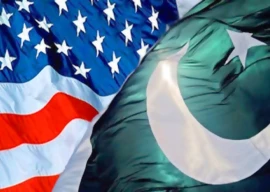
We have all been hearing for too long about the fallout on Pakistan from Afghanistan’s chaos after the US withdrawal that has been unexpectedly fast, unplanned, and extraordinarily undignified. We can condemn a superpower but cannot penalise it — their allies put them on God’s pedestal even if beneath they reek of hypocrisy, debauch, and manipulation. Power speaks and hears only one language: the language of acquiescence.
Other than on its western borders, Pakistan has remained untainted from the imbroglio emanating from Afghanistan, which is in disarray for the lack of system, as the older order dismantled under its weight. Pakistan’s armed forces, intelligence, and law enforcement agencies have done a remarkable job of maintaining peace without disturbing the life of ordinary people with excess security measures. We are all going about our lives nonchalant. Children are attending schools. The offices are working. Hotels are brimming with guests. Restaurants are doing business. Banks are operating. People engaged in international trade have not registered any complaints. Moreover, of all, the cantonment board elections recently concluded nationwide had been peaceful. If anything unusual has happened, it is the unfavourable decision of the New Zealand Cricket Board to pull out its team from Pakistan on the unfounded fear of security threats. Following suit, the England Cricket Board too cancelled its team’s tour to Pakistan. If the ECB and NZB had taken cue of security threat from the hoisting of Taliban flag on the notorious Red Mosque by its cranky head, Mullah Abdul Aziz, or Pakistan’s Foreign Minister Shah Mehmood Qureshi’s offer of amnesty to Tehreek-e-Taliban, it only speaks of the NZ and ECB’s naivety, double standards and the power of rich cricket boards.
Let us talk about naivety first.
Who were the Afghan Taliban when the US broached negotiation with them to end the war? They were insurgents? So much so that the US sidelined the Afghan government to wriggle out of the quagmire that had sucked the US militarily for 20-odd years. The Taliban were and are the sworn enemies of the US, but it had to sit with them to seek a safe passage. Coming back to the TTP. Why has the Pakistan government offered amnesty now? Going by the group’s ability to kill the security forces of Pakistan, if the number has not gone up, it has neither gone down. Negotiation with the terror group can never be a one-sided phenomenon. According to retired General Naeem Lodhi, the Balochistan Liberation Army and the TTP have shown resilience to gain peaceful coexistence in Pakistan. With the retreat of the US forces, India’s influence in Afghanistan has shrunk considerably, especially after the fizzling out of its ally, the National Directorate of Security, Afghanistan’s intelligence agency.
That leaves the TTP, the BLA, and other terrorist groups in a fledgling condition. Moreover, if the Afghan Taliban fulfil their promise and do not allow Afghanistan to be used for terror attacks on other countries, the endurance of the terror groups may snap sooner than later. This is not to say that the insurgents have become paper tigers overnight. It will never happen. Neither does it mean that negotiation will be an overarching amnesty proposal to even pardon the hardcore criminals within the rank and file of the terrorists. Negotiation is done to either create cleavages within the group, take advantage of the undercutting of their popular support, or buy time to distract them. One study by political scientists Andrew Kydd and Barbara Walter examined fourteen peace agreements signed between parties to civil wars from 1988 to 1998. Notwithstanding the role of the spoilers, talks without terror attacks enable 60 per cent of these treaties to take effect; otherwise, only one in four are successfully executed.
Now, let us talk about double standards.
It is June 2017. The Champion Trophy has started in England. Pakistan and India are set to lock heads at Edgbaston. Then, a terror attack strikes the city. About two miles from the venue of the tournament’s final at the Kia Oval, a runaway driver who has earlier driven a van into pedestrians on the London Bridge stabs eleven people to death and injures 48. Not only the Pakistan-India match but also the entire tournament goes on amidst multiple layers of security, roadblocks, and police contingents spread across the length of the city.
It is July 2005. The city of London is about to host the Ashes series. Unfortunately, a few murderers send a terror shock of unprecedented level by killing 50 Londoners at different places. Not only does the series go on, but Australia also plays its first ODI on the third day of the incident.
It is September 2021. The New Zealand women’s team is playing an ODI in Leicester in the third week of the month. The team is warned of security threats. The game nevertheless goes, and the threats are dismissed as “not credible”.
Finally, the rich cricket board.
The Indian Premier League (IPL) is a 12 billion dollar project. Usually, players make contracts clandestinely that give them millions of dollars within weeks. Commenting on the power of the IPL, George Dobell, the cricket guru, writes: “But it is remarkable how often changes to the schedule of international cricket occur which just happen to benefit the IPL. This, after the abandonment of the Manchester Test, is the second time in little more than a week.”
Now that the English team is not in Pakistan, their probability to be in the IPL, starting within a week, is definite. That speaks of India’s influence over the cricket boards of the ICC and the ECB, and others. Even if the New Zealand player were not part of the IPL, any distractions to the event ready to kick off in Dubai shortly was enough for India to intervene and cancel the cricket matches for a sham reason.
Sadly, it’s greed, it’s politics, it’s hypocrisy that defines international cricket today.
Published in The Express Tribune, September 23rd, 2021.
Like Opinion & Editorial on Facebook, follow @ETOpEd on Twitter to receive all updates on all our daily pieces.



1732003896-0/Zendaya-(1)1732003896-0-165x106.webp)
1731914690-0/trump-(26)1731914690-0-165x106.webp)
1732003946-0/BeFunky-collage-(70)1732003946-0-165x106.webp)


1729685382-0/Untitled-design-(57)1729685382-0-270x192.webp)








1731749026-0/Copy-of-Untitled-(3)1731749026-0-270x192.webp)

COMMENTS (1)
Comments are moderated and generally will be posted if they are on-topic and not abusive.
For more information, please see our Comments FAQ